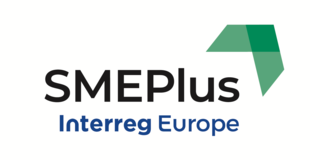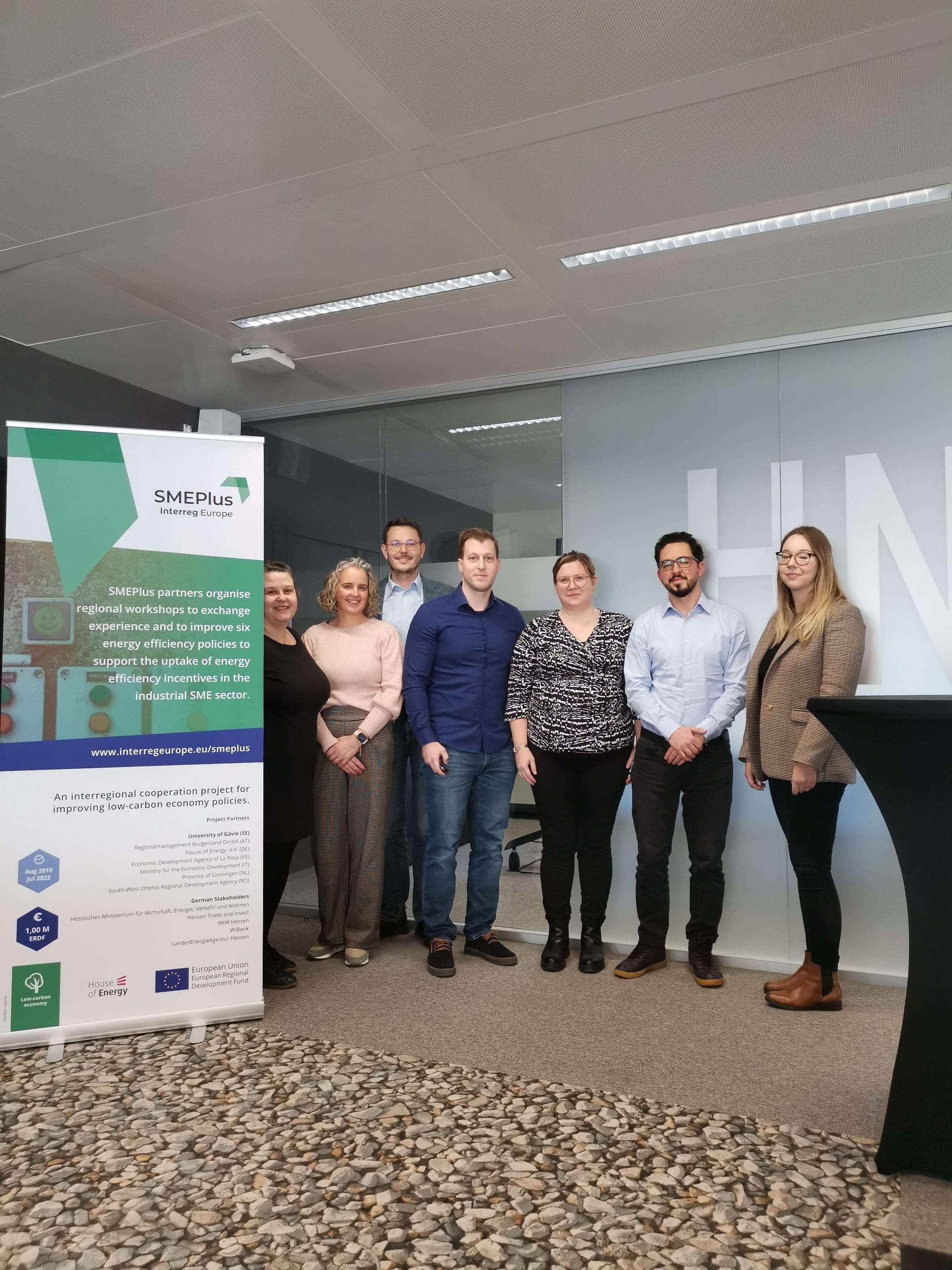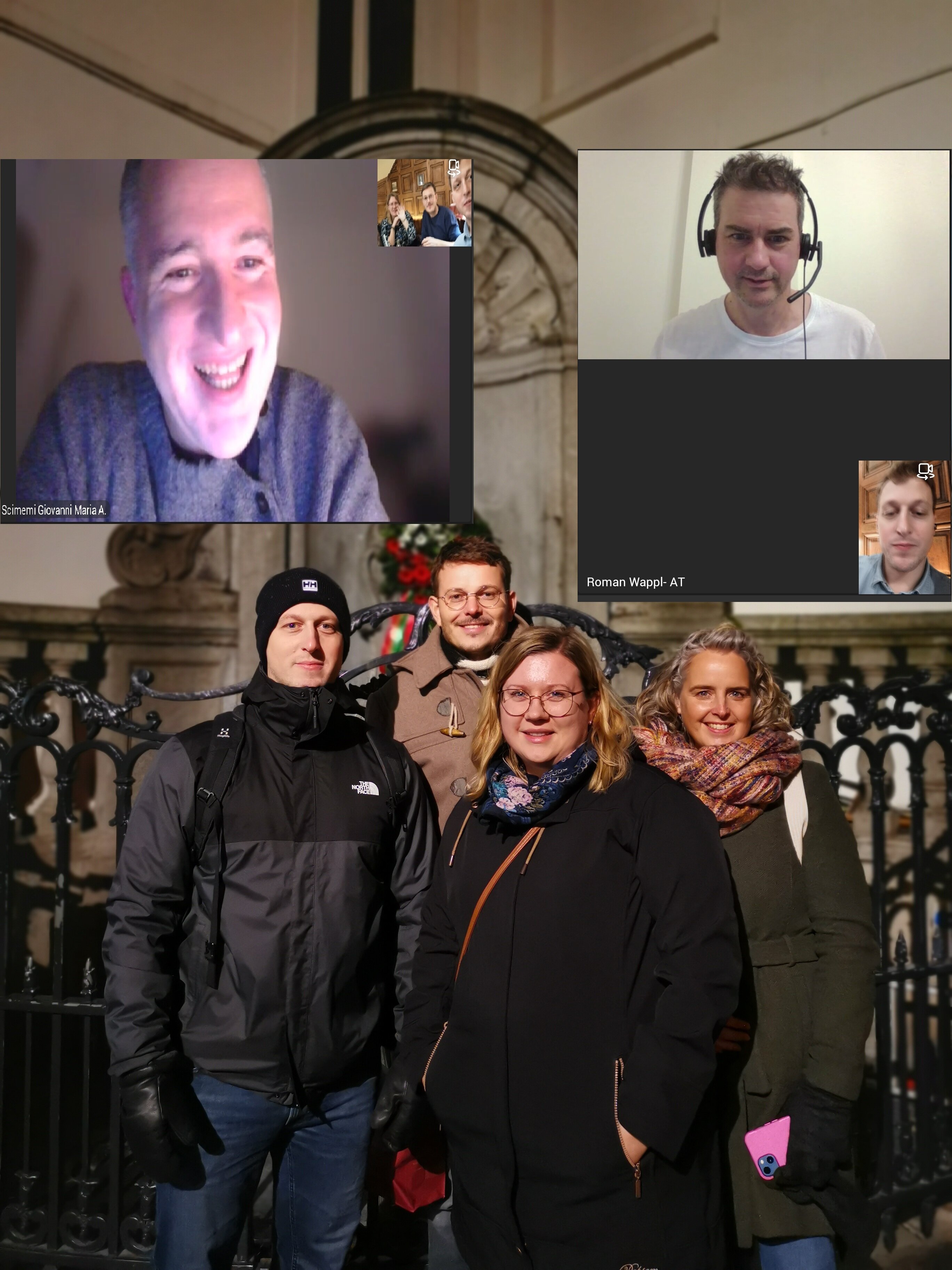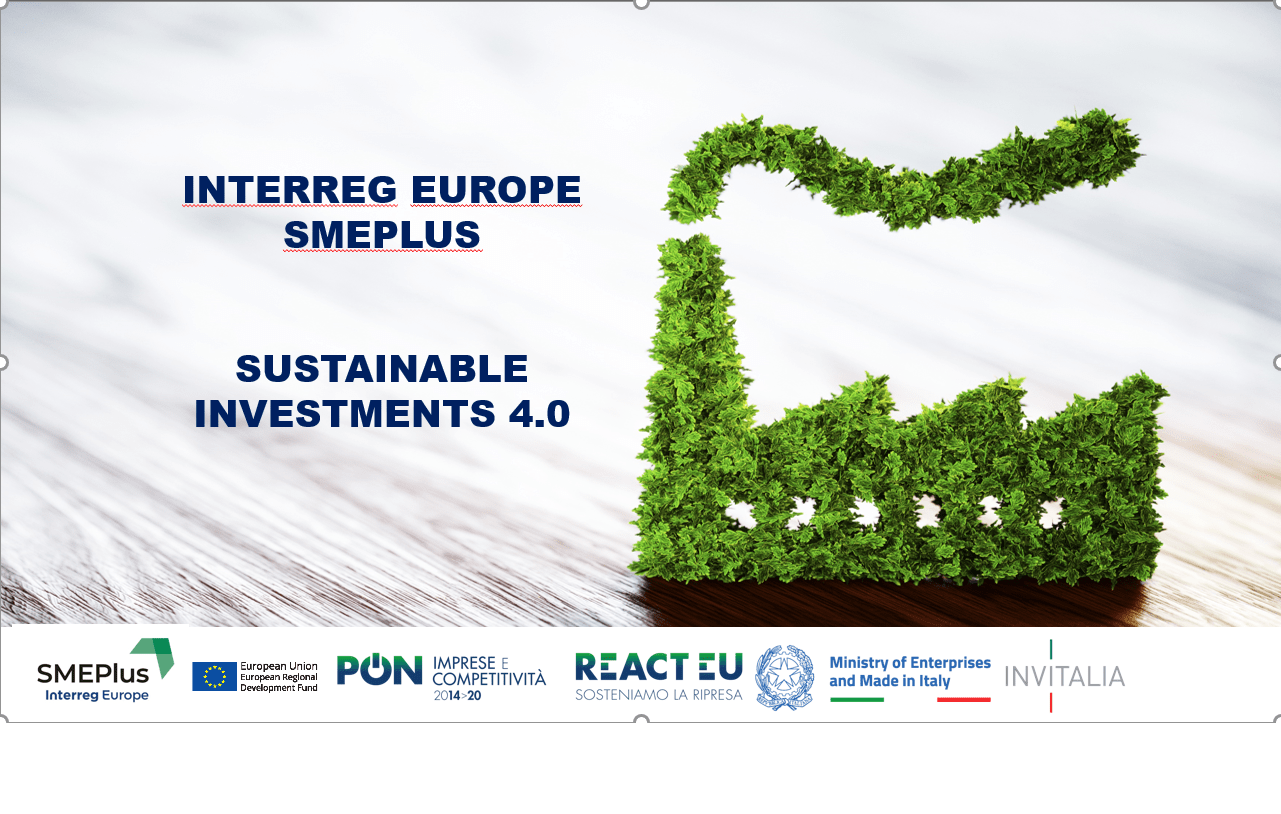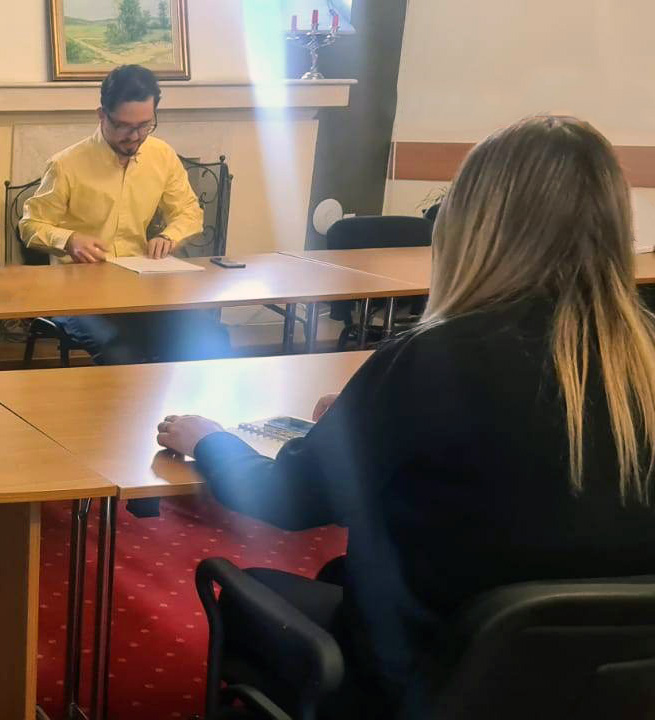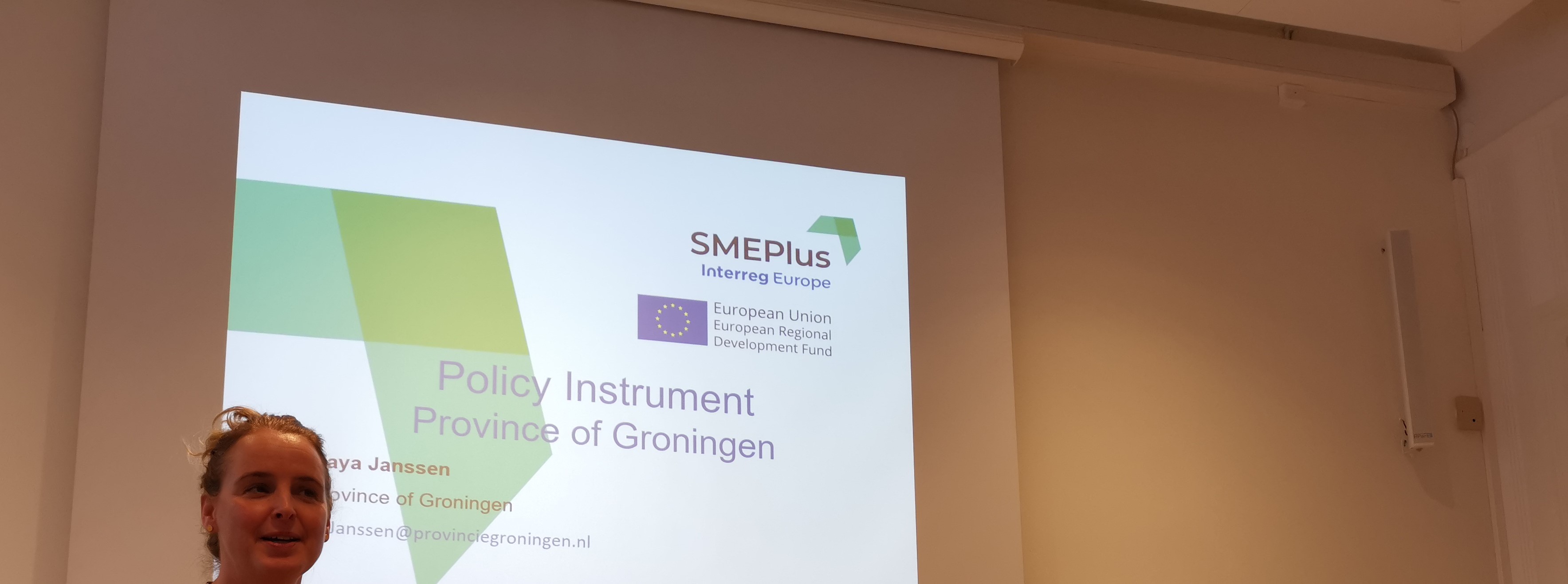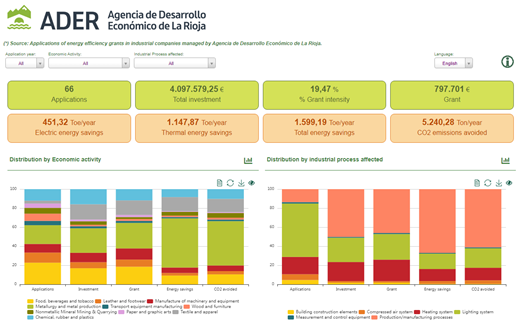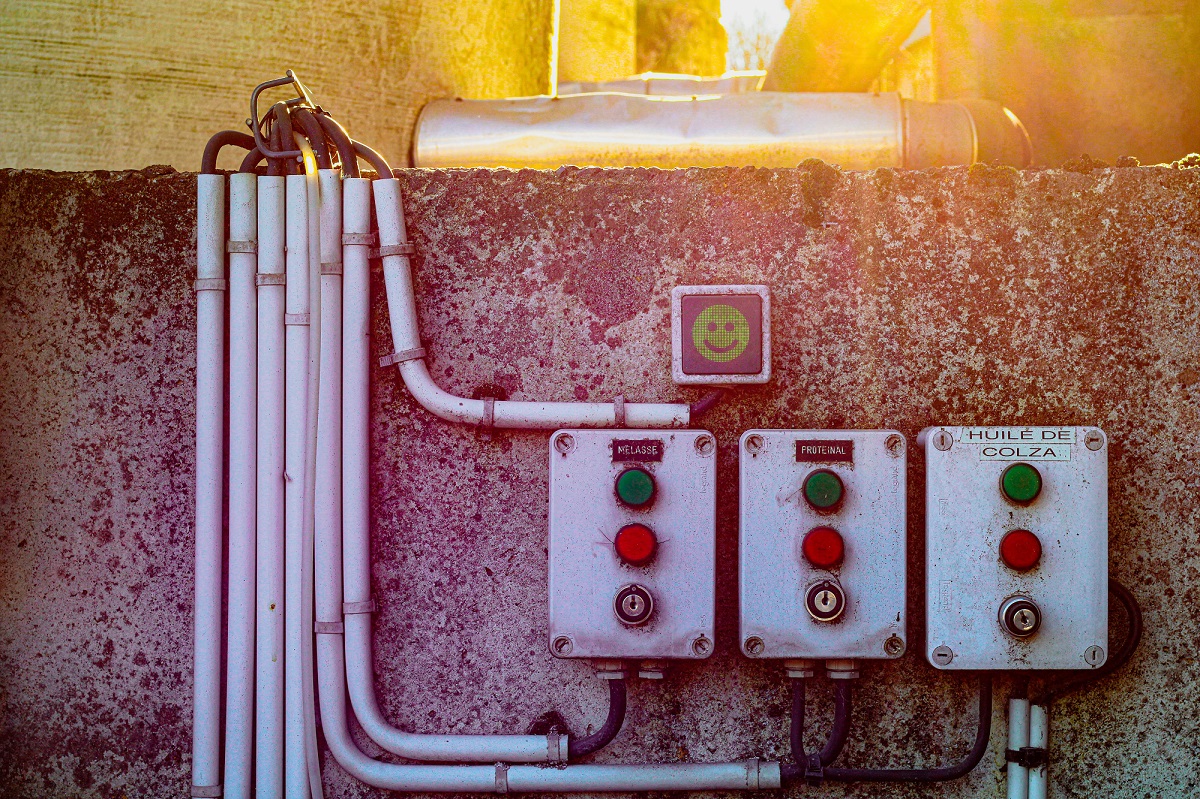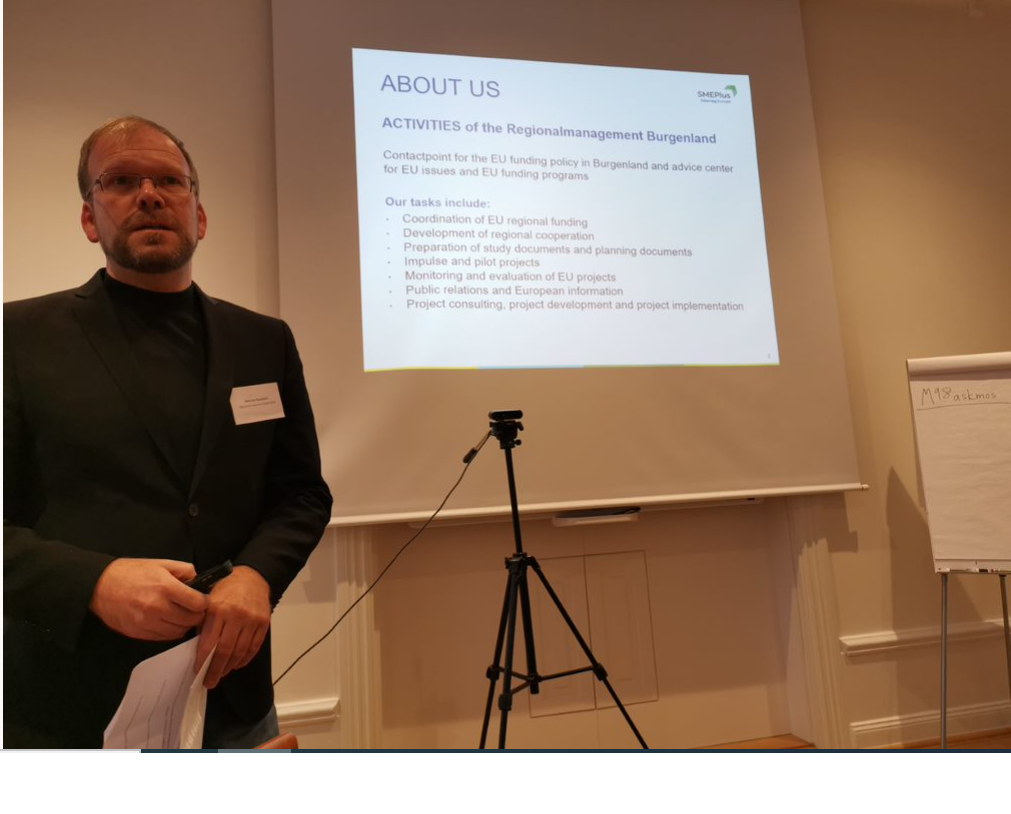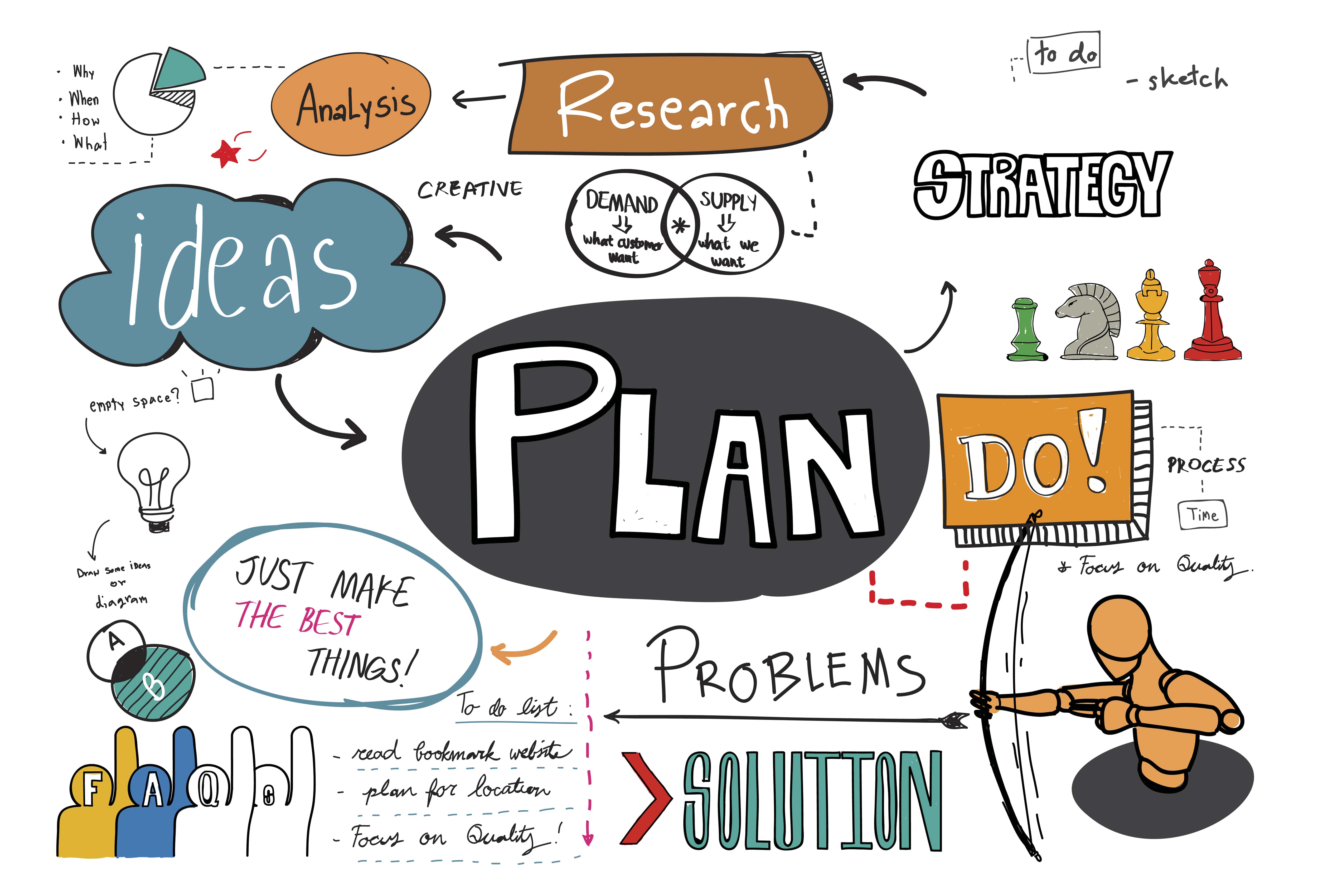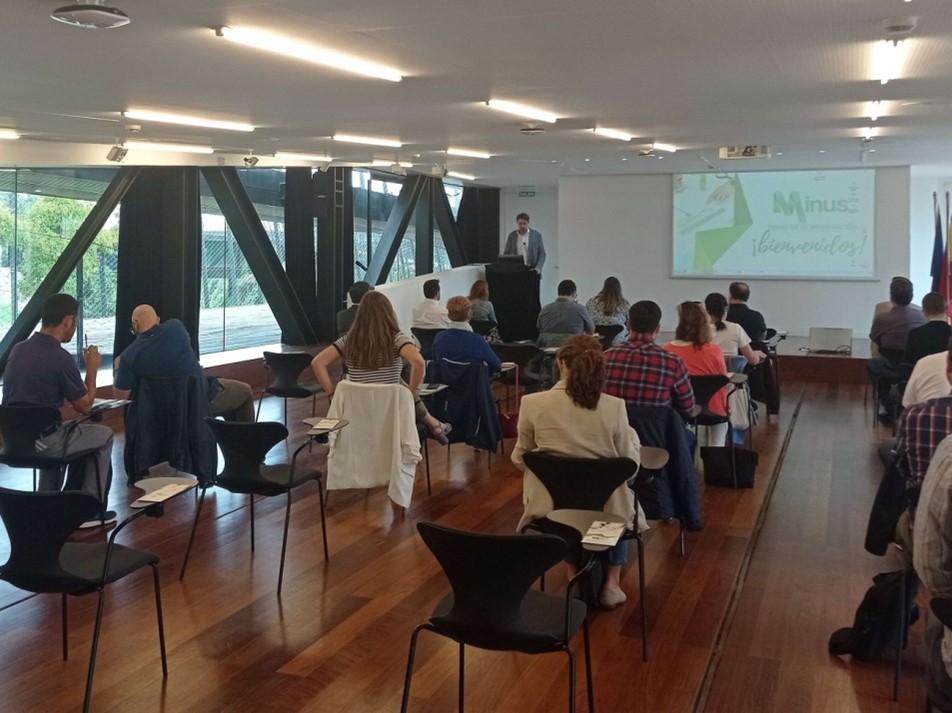To better understand how industrial SMEs in the region deal with energy efficiency issues and barriers, and how the government supports the SMEs tackling these issues, SMEPlus partners visited Dewatech company in Gävle, Sweden. This was the first study visit organized by the SMEPlus project on 27-29 November 2019. Dewatech cleans wastewater contaminated with oil and sludge. The company was part of an energy efficiency network. Energy efficiency network was one of our Swedish good practice which was presented to the partners during the workshop.
During the study visit, Dewatech employees explained their drivers and barriers in improving their energy efficiency. They also mentioned additional non-energy benefits apart from lowering energy costs. E.g. in the past treated output water was let into the sea at about 40 degrees Celsius, today this hot water is used to keep the truck scale also known as weighbridge ice and snow-free, before it flows into the sea. Heating the weighbridge cools downs the water to about 10 degree Celsius, which is a more environmentally friendly solution for the wildlife than the 40 degrees Celsius water. Dewatech joined the energy efficiency programme having certain expectations. However, the company gained more energy efficiency benefits from the programme than what was anticipated. Dewatech improved their energy efficiency by about 10-20 % as a result of participating in the energy efficiency network programme, and on top of that one of the participants in the programme became their new customer.
During the workshop, the SMEPlus partners introduced their policy instruments to the participants and stakeholders from Gävle. Furthermore, three local good practices were looked upon: energy efficiency networks ENERGIG, software for industrial energy auditing and a database for energy efficiency measures. Shortly after, in a workshop session, the partners had an opportunity to discuss about the policies and good practices in smaller groups as part of the exchange of experience & learning. Further, the partners discussed ideas on how to start a new project, how to improve governance or structural change in their regions. Already in our first workshop, the Romanian partner showed interest implementing one of the Swedish good practice in their region, and the German policy owner found common policy operating method with the Spanish policy owner.
An interview questionnaire on the drivers and non-energy benefits was introduced to the partners. The questionnaire will be translated into national languages and interviews will be performed with SMEPlus partners´ local industrial SMEs, policymakers and energy auditors.
Results from the study visit and workshop will be considered when SMEPlus partners will be working out measures necessary for improving energy efficiency policy incentives.
